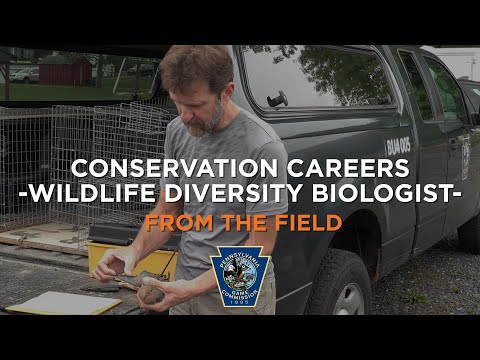Exploring Life: Biologist Job Description and Salary

Biologist Job Description Template
Biologist Job Description A biologist is a scientist who studies living organisms and their interactions with the environment. They conduct research, perform experiments, and analyze data to understand how organisms function and evolve. Biologists can specialize in various areas such as microbiology, genetics, ecology, or physiology. The primary role of a biologist is to conduct scientific investigations to expand our knowledge of living organisms. They design experiments, collect samples, and analyze data using various techniques and equipment. Biologists also use advanced technologies, such as DNA sequencing and imaging tools, to study the molecular and cellular processes within organisms. In addition to research, biologists may also be involved in teaching and education. They may teach biology courses at universities or secondary schools, imparting knowledge and skills to aspiring biologists. Biologists may also engage in science communication, writing scientific papers, or presenting their findings at conferences. Fieldwork is an essential part of a biologist’s job, as they often need to collect samples or observe organisms in their natural habitats. This may involve traveling to remote locations, conducting surveys, or studying wildlife populations. Biologists may work independently or as part of a team, collaborating with other scientists, researchers, or environmentalists. Two important qualities for a biologist are curiosity and attention to detail. Curiosity drives them to explore and discover new findings, while attention to detail is crucial for accurate data collection and analysis. Biologists should also possess strong analytical and problem-solving skills, as they often encounter complex biological phenomena that require scientific interpretation. In conclusion, a biologist is a scientist who studies living organisms and their interactions. They conduct research, perform experiments, and analyze data to advance our understanding of the natural world. With their expertise, biologists contribute to various fields such as medicine, conservation, and agriculture, making a significant impact on society.Biologist Responsibilities
Biologist Requirements
How Much Does A Biologist Make?
Biologist Salary
| Position | Salary |
|---|---|
| Research Assistant | $35,000 – $50,000 |
| Lab Technician | $40,000 – $60,000 |
| Field Biologist | $45,000 – $70,000 |
| Wildlife Biologist | $50,000 – $80,000 |
| Ecologist | $55,000 – $90,000 |
A biologist’s salary can vary depending on their position and level of experience. Research assistants, who typically have a bachelor’s degree, can earn between $35,000 and $50,000 per year. Lab technicians, who often have an associate degree, can make between $40,000 and $60,000 annually.
Field biologists, who conduct research and data collection in natural environments, can earn between $45,000 and $70,000. Wildlife biologists, who focus on studying and conserving animal populations, can make between $50,000 and $80,000.
Ecologists, who study the interactions between organisms and their environment, typically have a higher salary range of $55,000 to $90,000. These figures are approximate and can vary based on factors such as location, employer, and level of education.
Biologist Salaries by Country
Top Paying Countries for Biologist
| Country | Average Salary (USD) |
|---|---|
| United States | 80,000 |
| Switzerland | 75,000 |
| Australia | 70,000 |
| Canada | 65,000 |
| Germany | 60,000 |
In the field of biology, salaries may vary depending on the country you work in. The table above showcases the average salaries for biologists in the top paying countries. According to the data, the United States offers the highest average salary for biologists, with an average of $80,000 per year. Switzerland follows closely with an average salary of $75,000, while Australia, Canada, and Germany also provide lucrative opportunities for biologists with average salaries of $70,000, $65,000, and $60,000 respectively. These figures reflect the demand for biologists and the value placed on their expertise in these countries.
A video on the topic Biologist
Video Source : PA Game CommissionInterview Questions for Biologist
1. What is a biologist?
A biologist is a scientist who studies living organisms and their relationship to their environment.
2. What are the different branches of biology?
The different branches of biology include microbiology, botany, zoology, genetics, ecology, and physiology, among others.
3. What is the role of a biologist?
The role of a biologist is to conduct research, collect and analyze data, perform experiments, and communicate findings to contribute to our understanding of living organisms and their ecosystems.
4. What skills are important for a biologist?
Important skills for a biologist include critical thinking, problem-solving, data analysis, laboratory techniques, communication, and teamwork.
5. What is the importance of biology in society?
Biology is important in society as it helps us understand the natural world, provides insights into human health and disease, aids in conservation efforts, and contributes to advancements in agriculture and biotechnology.
6. What are some common research techniques used by biologists?
Some common research techniques used by biologists include DNA sequencing, microscopy, statistical analysis, field surveys, and animal behavior observation.
7. How does biology relate to other scientific disciplines?
Biology is closely related to other scientific disciplines, such as chemistry and physics, as it often relies on principles and techniques from these fields. It also intersects with fields like medicine, environmental science, and agriculture.
8. What are some ethical considerations in biology research?
Some ethical considerations in biology research include the humane treatment of animals, informed consent for human subjects, privacy and confidentiality, and the responsible use of genetic information.
9. What are some current advancements in the field of biology?
Some current advancements in biology include gene editing technologies like CRISPR, advancements in neuroscience and understanding of the brain, and the use of biotechnology to develop new drugs and therapies.
10. How can someone pursue a career in biology?
To pursue a career in biology, one typically needs a bachelor’s degree in biology or a related field. Further education, such as a master’s or doctoral degree, may be required for certain positions or research opportunities.






